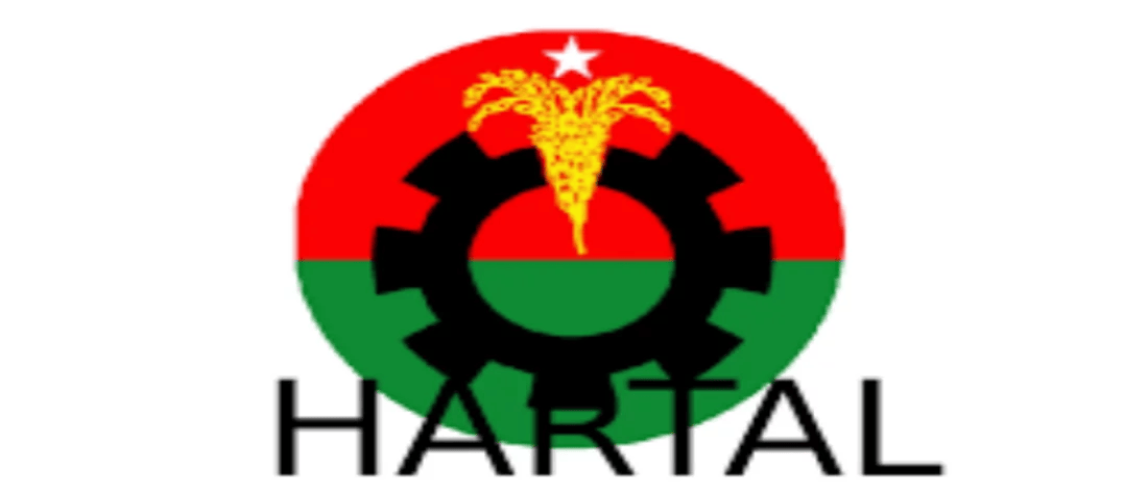The Bangladesh Nationalist Party (BNP) has been organizing hartals and blockades since October 29 to oppose the scheduled general election on January 7, 2024. The party has organized strikes and blockades on 13 occasions, with the primary objective to stunt the citizens' physical mobility and the nation's transportation infrastructure, anticipating that individuals may become exasperated and engage in public protests. The election commission would subsequently reconsider its position about conducting the election.
But such an event is unlikely to transpire, and the hartals and blockades have shown to be ineffectual in achieving the opposition's objectives. A question then arises as to why the political opposition frequently declares hartals without achieving any substantial positive outcome.
A hartal is a political strategy employed by a party to exert pressure on the government. Bangladesh witnessed the profound influence of these political demonstrations during the uprising against General Ershad in the late 1990s. The impact of this phenomenon was evident in the mid-1996s when the Awami League implemented political strategies such as hartals and blockades for a lengthy duration to pressure the BNP government to step down and establish a caretaker administration.
Nevertheless, this mechanism has not demonstrated a capacity for success in recent years. The BNP's protracted hartal call prior to the 2014 election was ineffective in exerting influence over the government and the citizens. Subsequently, these processessions have waned in their impact on the country's political landscape.
The BNP's extended hartal revealed a new aspect of political protest. Throughout that period, members of the BNP-Jamaat engaged in extensive acts of arson, targeting vehicles, resulting in the deaths of several innocent individuals, and causing severe injuries and further suffering to others. The party is perpetrating arson attacks to ensure the success of hartals and blockades, but the magnitude of these instances is now lower in comparison to prior occurrences. The primary victims of these horrendous attacks are the ordinary individuals who possess limited influence over political matters.
But the influence of hartals on public life is diminishing as time goes on. During these hartals, the presence of inter-district buses was observed on the streets. The trains have been operating according to the regular schedules. Over time, citizens have adapted to the restrictions and barriers imposed by the opposition party.
There does remain some apprehension since the timing and targets of the opposition supporters' arson attacks remain unpredictable. The most recent train tragedy in Gazipur, resulting from the compromised railway lines amid BNP blockades, has instilled fear among passengers over their safety. Authorities stated that an oxy-acetylene gas cutter was employed to cut the line. Such an activity was not anticipated by anyone. This catastrophe can potentially cause far more significant and severe consequences than what we have witnessed.
Thus far, individuals have placed their trust in rail travel, thinking it to be more secure than bus transportation, but this episode has induced hesitation. No group or individual has been implicated in carrying out such a reprehensible crime, taking the lives of innocent people, but law enforcement officials must apprehend the mastermind responsible for the tragedy and guarantee justice for the safety of the citizens.
In political maneuvering, the acquisition and retention of power are perennial objectives for any political party. While employing various strategies to gain control of the state is an inherent part of the political game, ethical boundaries must be respected. A political party must understand the limitations of its authority and refrain from resorting to coercive measures that could alienate the public. History has shown that attempts to hold individuals captive or resorting to tactics reminiscent of arson assaults can lead to severe backlash, tarnishing the party's reputation and causing harm to its legitimacy.
In a democratic society, the power vested in a political party stems from the support and trust of the people. Any deviation from ethical standards risks eroding this foundation and undermines the very principles upon which a democratic system thrives. Understanding this, a wise political party should recalibrate its approach when faced with the realization that coercive actions yield diminishing returns and may even backfire.
(This article was first published by Dhaka Tribune, Bangladesh)
















